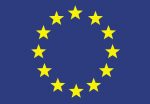Location
Croatia is located in Central and Southeast Europe, bordering Hungary to the northeast, Serbia and Bosnia and Herzegovina to the east, Montenegro to the southeast, the Adriatic Sea to the south and Slovenia to the west.
Croatia is a small but very diverse country, partly on the coast of the Adriatic sea and partly in the continent. It has a little over 4 million inhabitants.
There are 4 larger cities with population over 100 000; Zagreb, Split, Rijeka and Osijek. Zagreb is the Capital and the largest city with a population of 802 762. Zagreb and Osijek are located inland, and Split and Rijeka are located on the coast of the Adriatic Sea.
Climate
Most of Croatia, its continental part, has a moderately warm continental climate. Average monthly temperature ranges between −3 °C in January and 18 °C in July.
The coldest parts of the country are mountain areas of Lika and Gorski Kotar, where there is a lot of snow in winter and in summer it is refreshing. The warmest areas of Croatia are at the Adriatic coast.
Croatian Society
Majority of Croatians – 91% declare themselves as Catholics. 1,47% of Croatians are Muslims. 4,57% do not belong to any religion and declare themselves as atheist, agnostics or skeptics. State affairs are independent from any religion, as it is set out in Croatian Constitution. However, Christian Catholic holidays are often celebrated as public holidays as well.
Croatian language is the official language in Croatia and is very similar to languages spoken in other countries that have emerged after the collapse of the former Yugoslavia – Serbian, Bosnian and Montenegrin in particular.
Croatia is a parliamentary democracy. The head of the state is the President of the Republic. The holder of the executive power in Croatia is the Government of the Republic of Croatia. The Government is composed of Prime Minister and ministers.
Croatia is governed by the rule of law with The Constitution as the highest general act by which the state defines the general principles and forms of its political and social order. Everyone in Croatia has guaranteed the same fundamental human rights and freedoms, regardless of nationality, race, gender, language, religion, political or other belief, place of birth, education, social status, disability or any other personal characteristic.
Croatians hold and practice various traditions and customs, depending on where they live. Northern Croatia and the continental part on the east are very different from Adriatic Croatia, from dialect to everyday habits. However, there are a few things most Croatians have in common: passion for coffee drinking, football and complaining about the weather and almost everything else.
Money, Currency and Banking
In Croatia, the currency is Kuna. The exchange rate is approximately 7,4 Kuna for 1 Euro. To receive or transfer money, you will need to open a bank account. There are two types of accounts:
- current account for receiving money and carrying out payments, withdrawing cash and making deposits,
- giro account, which is less common.
There are also different bankcards. Most common are debit cards for payments and withdrawing the money at the bank or “cash machine”, and credit cards, which allow you to buy things or pay for services on credit (paying in monthly installments).
Public Transport Information
Intercity transport:
Public transport in largest cities:
Legal Matters: Rights and Responsibilities
What are my rights and responsibilities?
The rights you are entitled to in Croatia, as a foreigner, will depend on your legal status.
If you are asylum seeker, you have the right on residence, accommodation, emergency healthcare, legal aid and documents. You move freely within Croatia, you have freedom of religion and right to be protected against discrimination. Children asylum seekers have the right to education. You have the right to work only when you obtain a work permit, and you can get it 9 months after you apply for international protection.
If you are granted international protection you have the same human and citizens’ rights as Croatian citizens, except the right to vote or be elected for public office.
As a foreigner in Croatia, no mater your legal status, you have the responsibility to respect Croatian Constitution and laws, and to respect the rights of others in Croatia. You have the obligation to register your place of residence whenever you move. You have the responsibility to learn the language and to take steps toward employment or education.
Obtaining Citizenship
If you are granted international protection in Croatia, you have the right to acquire Croatian citizenship if you meet the conditions from the Citizenship Law. Foreigners can apply for the citizenship after 8 years of continuous living with a registered residence (temporary and/or permanent) in Republic of Croatia.
You can apply for Croatian citizenship only personally, in the local police station or police department, or Croatian embassy if you are currently abroad.
The application form for citizenship can be downloaded at following web address.
Further Information and Links
Where is Croatia:
Map of Croatia
Croatia in Europe
Links to language learning opportunities:
Croaticum e-course
HR4EU e-course
Loescen learn Croatian online
For applying for Croatian citizenship you can download this Application form.

 This website was funded by the European Union’s Asylum, Migration and Integration Fund. The content of this website represents the views of the author only and is his/her sole responsibility. The European Commission does not accept any responsibility for use that may be made of the information it contains.
This website was funded by the European Union’s Asylum, Migration and Integration Fund. The content of this website represents the views of the author only and is his/her sole responsibility. The European Commission does not accept any responsibility for use that may be made of the information it contains.


